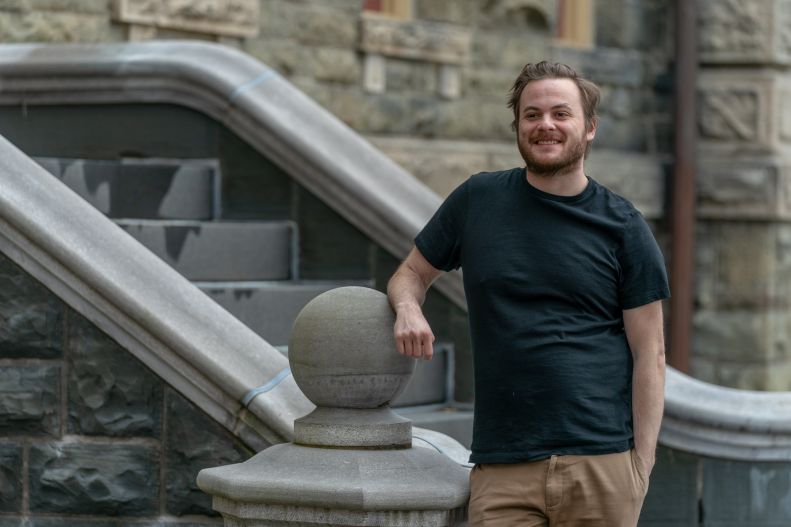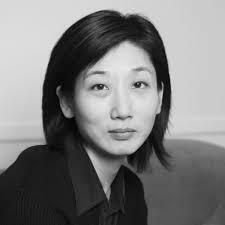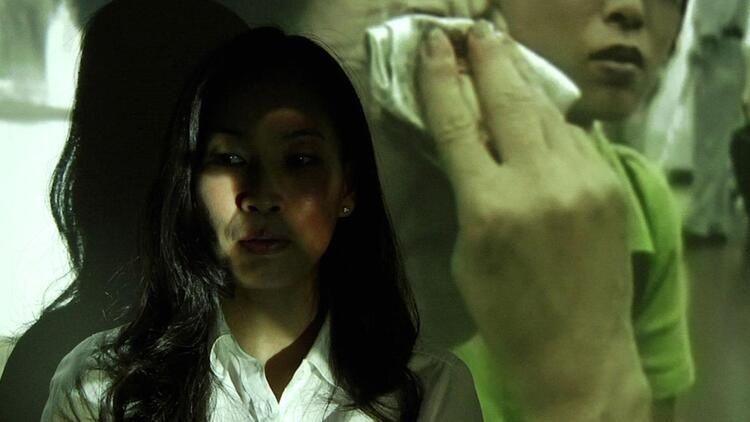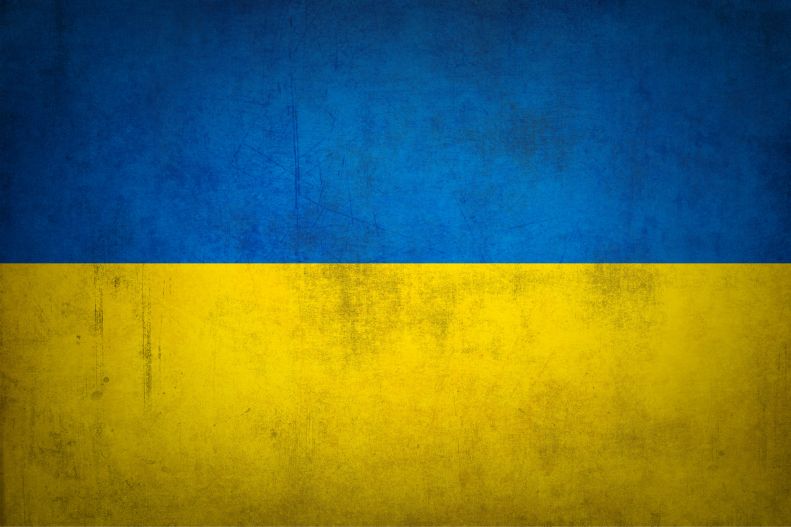Reppy Institute for Peace and Conflict Studies
‘Death by a Thousand Cuts’: U.S. TikTok Bans Gain Ground

Sarah Kreps, PACS
“It’s part of this larger government effort to slow down Chinese progress and impede their ability to engage in surveillance of Americans,” says Sarah Kreps, professor of government and public policy.
Additional Information
Global PhD Research Awards

Open now! Apply by March 10
PhD students: Conduct your international field research with a $10,000 award. Read about Vincent Mauro’s 2021–22 award and find out how to apply.
Additional Information
Memorial Statement for Catherine Kelleher

We are saddened to report that Catherine Kelleher, a long-time participant in projects in PACS, has died.
Catherine’s first visit to the Peace Studies Program, as it was then known, was in 1980 to give a Thursday seminar, and for the next 35 years she was a frequent collaborator in the program’s projects. Together with Judith Reppy, she organized three sessions of the Winter Course of the International School on Disarmament and Research on Conflicts (ISODARCO) in Andalo, Italy, in which Cornell students and faculty participated, and they also collaborated on two major research projects on nuclear disarmament: “Getting to Zero; The Path to Nuclear Disarmament” (2011) and “Stability at Low Nuclear Numbers” (2014-17). Over the years she was a generous mentor to several generations of our graduate students, including Matthew Evangelista, Eugene Cobble, and Debak Das.
Catherine believed in building institutions as well as encouraging individual scholars. One such institution was the Center for International Security Studies at the University of Maryland (CISSM). Here is the link to their memorial statement: https://www.cissm.umd.edu/news/catherine-mcardle-kelleher-appreciation.
Those who knew Catherine will miss her wisdom, energy, and sense of humor. Her memory lives on in the institutions she fostered and the colleagues she mentored and befriended.
Additional Information
Fires and Forest Loss in the Colombian Amazon

May 9, 2023
12:25 pm
Uris Hall, G08
Dr. Dolors Armenteras will present her analysis of the patterns and impacts of forest degradation in the Colombian Amazon for more than 20 years. Her presentation will share insights and updates from the remote sensing of forest dynamics and land use patterns following the 2016 peace process in Colombia.
About the Speaker
Dr. Dolors Armenteras is a geographer and biodiversity conservation expert. She is a biologist from the Universitat de Barcelona, holds an MSc in Environmental Forestry from the University of Wales, and a PhD in Geography from King’s College London, UK. Most of her scientific and research work has been developed over the last 20 years in Colombia.
She is currently a Professor of Landscape Ecology at the Universidad Nacional de Colombia. Before that, she worked in the environmental sector, where she developed the first integrated spatial geographic information system for monitoring Colombian ecosystems and biodiversity in the early 2000s and coordinated the first ecosystem services assessment undertaken in Colombia in 2005. Her experience and knowledge of tropical ecology include work on fire ecology, biodiversity conservation, deforestation, land use changes, and sustainability scenarios.
Co-Sponsors: Reppy Institute for Peace and Conflict Studies, Department of Natural Resources, Einaudi Center
Additional Information
Program
Einaudi Center for International Studies
Latin American and Caribbean Studies
Reppy Institute for Peace and Conflict Studies
Making Peace With Nature: Ecological Encounters Along the Korean DMZ

May 1, 2023
4:45 pm
Goldwin Smith Hall, GSH64
Eleana Kim (Anthropology, UC Irvine)
This book talk discusses Eleana Kim’s recently published ethnography of the ecologies of the South Korean borderlands, in areas adjacent the Korean Demilitarized Zone. Based on fieldwork with ecologists, environmentalists, and residents who live along the border, this book reframes the Korean DMZ and the national division around more-than-human peace. It also argues that militarized ecologies deserve greater attention in the context of climate crisis and the convergence of militarization and privatization at a planetary scale. BIO: Eleana Kim is a sociocultural anthropologist and professor of anthropology and Asian American Studies at University of California, Irvine. She is the author of Making Peace with Nature: Ecological Encounters along the Korean DMZ (2022) and Adopted Territory: Transnational Korean Adoptees and the Politics of Belonging (2010), both published by Duke University Press. She currently serves as the president of the Society for Cultural Anthropology.
Additional Information
Program
Einaudi Center for International Studies
Reppy Institute for Peace and Conflict Studies
East Asia Program
Host Nation film screening

April 19, 2023
7:00 pm
Cornell Cinema, 104 Willard Straight Hall, Ithaca NY, 14853
Host Nation by Ko-woon Lee (2016, 116 minutes)
“Do you want to work in Korea?” Thus begins twenty-six-year-old Filipina woman Maria’s two-year journey into the sex industry in South Korea, which mainly caters to American soldiers stationed there.
Host Nation chronicles Maria’s hopes, dreams, and crucial reality for two years to lay bare the legalized system of sex trafficking between South Korea and the Philippines. Maria had long dreamed about escaping from her slum neighborhood in Davao, Philippines, and getting a job abroad and when she was introduced to a talent manager, Madam Yolie, it seemed her dream was about to come true.
Yolie, who operates a training center and a temporary boarding house in Manila for women, has witnessed the ups and downs of the sex industries of neighboring Asian countries and sees the openings in the industry as job opportunities for poor Filipino women.
The documentary follows Maria’s pathway into the South Korean sex industry via the E-6 visa, the so-called “entertainers’ visa,” slowly revealing the vast network of cross-border profit makers who enable sex trafficking, including a talent scout, a manager in Manila, a Korean broker, a Korean club owner and even Korean government agencies.
Part of the series Power of Seeing 보는 이의 권력 hosted by the East Asia Program at the Mario Einaudi Center for International Studies.
Film website: www.koreanfilm.or.kr/eng/films/index/filmsView.jsp?movieCd=20164198
In Korean, Tagalog and English with English subtitles.
Generously cosponsored by the Reppy Institute for Peace and Conflict Studies and the Cornell Society for the Humanities.
Additional Information
Program
Einaudi Center for International Studies
Reppy Institute for Peace and Conflict Studies
East Asia Program
Southeast Asia Program
The Woman, the Orphan, and the Tiger film screening

April 12, 2023
7:00 pm
Cornell Cinema
The Woman, the Orphan, and the Tiger by Jane Jin Kaisen & Guston Sondin-Kung (2010, 72 min)
Following a group of international adoptees and other women of the Korean diaspora in their 20s and 30s, the film uncovers how the return of the repressed confronts and destabilizes narratives that have been constructed to silence histories of pain and violence inflicted onto the bodies and lives of women and children.
Film website: janejinkaisen.com/the-woman-the-orphan-and-the-tiger
In English, Korean and Danish with English subtitles
Part of the series Power of Seeing 보는 이의 권력 hosted by the East Asia Program at the Mario Einaudi Center for International Studies.
Generously co-sponsored by the Reppy Institute for Peace and Conflict Studies and the Cornell Society for the Humanities.
Additional Information
Program
Einaudi Center for International Studies
Reppy Institute for Peace and Conflict Studies
East Asia Program
Film Screening: Tour of Duty

March 15, 2023
7:00 pm
Cornell Cinema
Tour of Duty by Kim Dong-ryung and Park Kyoung-tae (2 hours 30 min. 2012)
There remains only silence in a US military camp town in the northern part of Gyeonggi province which will be pulled down any time soon.
In the town, three women are still living with pains engraved in their bodies. Aunt Bobby who used to make burgers in Seonyu-ri for 30 years; Ms. Insoon Park who used to collect scraps and draw paintings on them in the abandoned narrow alleys of Bbat-bul, Uijeongbu; and Ms. Sungja Ahn who is half-Korean and half-African American. Following the pieces of their memories, the film travels into the forgotten town to reveal the truth left behind.
This documentary by Kim Dong-ryung and Park Kyoung-tae chronicles the lives of three women impacted by the US military presence in South Korea. The Seonyu-ri red light district located at the Paju U.S. military camp town became a well-known site after the Korean War. Now awaiting its fate to be demolished, this film sets out on a trip through time and space in this place where certain memories and people have long departed and others still linger.
In Korean with English subtitles.
Film website: www.dmzdocs.com/eng/addon/00000002/history_film_view.asp?m_idx=101967&Q…
Part of the series Power of Seeing 보는 이의 권력 hosted by the East Asia Program at the Mario Einaudi Center for International Studies.
We thank the generous co-sponsorship of the following:
The Reppy Institute for Peace and Conflict Studies
The Cornell Society for the Humanities
Additional Information
Program
Einaudi Center for International Studies
East Asia Program
Reppy Institute for Peace and Conflict Studies
Turkey and Syria Earthquake

Campus Rallies to Support Survivors
Cornellians came together to support earthquake survivors and students and faculty from the region. More events are scheduled in coming days.
Additional Information
Lessons from the Meme War in Ukraine

Sarah Kreps, PACS/IES
This piece about contemporary propaganda presents reserach co-authored by Sarah Kreps, professor of government and public policy, Paul Lushenko, Cornell PhD candidate in government; and Keith Carter, lieutenant colonel in the U.S. Army and director of the defense and strategic studies program at the United States Military Academy.
